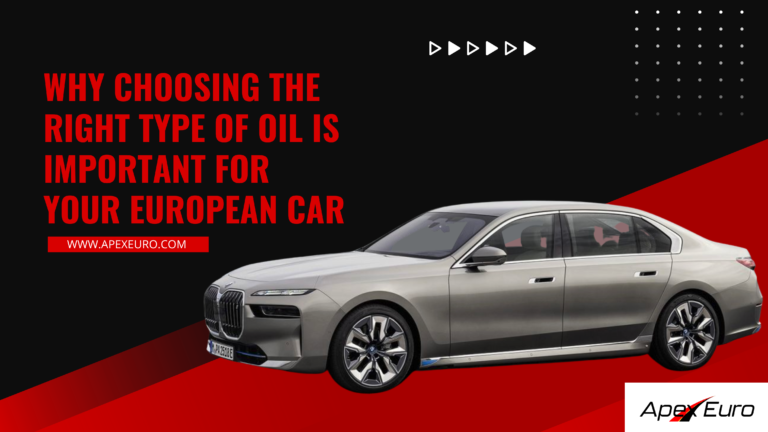You love your European car. Whether it’s a sleek Mercedes-Benz or a sporty BMW, you take pride in keeping it running smoothly and looking its best. But have you ever stopped to consider the importance of choosing the right type of oil for your vehicle? Using the wrong type of oil can have serious consequences, from decreased fuel efficiency to engine damage. In this article, we’ll explore why choosing the right type of oil is so important for your European car, and what you need to know to make the right choice.

Before we dive into the specifics of choosing the right oil for your European car, let’s take a moment to talk about oil viscosity. Viscosity refers to the thickness or “flowability” of the oil. Different engines require different viscosities of oil to function properly.
Low viscosity oil, such as 5W-30, flows more easily and is better for cold temperatures. It’s commonly used in modern engines that require lighter oils.
High viscosity oil, such as 10W-40, is thicker and better suited for high temperatures or older engines that require heavier oils.
It’s important to choose the right viscosity of oil for your engine to ensure proper lubrication and prevent damage.
Now that we understand the basics of oil viscosity, let’s talk about how to choose the right type of oil for your European car. Here are a few key factors to consider:
2. Many European car manufacturers recommend the use of synthetic oil over conventional oil. Synthetic oil offers superior lubrication and performance, especially in extreme temperatures. It also tends to last longer and require fewer oil changes. However, synthetic oil is typically more expensive than conventional oil.
In addition to manufacturer recommendations, the European Automobile Manufacturers Association (ACEA) has established standards for engine oil that are specific to European vehicles. These standards take into account factors such as fuel efficiency, emissions, and engine protection. It’s important to choose an oil that meets the appropriate ACEA standard for your vehicle.
Some European car manufacturers recommend or require the use of specific oil additives to enhance engine performance or meet emissions standards. It’s important to check your owner’s manual or consult with a mechanic to ensure that you’re using the appropriate oil and additives for your vehicle.
By taking these factors into account, you can choose the right type of oil for your European car and ensure optimal engine performance and longevity.